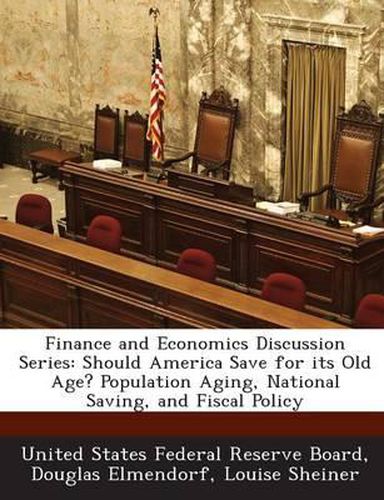Readings Newsletter
Become a Readings Member to make your shopping experience even easier.
Sign in or sign up for free!
You’re not far away from qualifying for FREE standard shipping within Australia
You’ve qualified for FREE standard shipping within Australia
The cart is loading…






While popular wisdom holds that the United States should save more now in anticipation of the aging of the baby boom generation, the optimal response to population aging from a macroeconomic perspective is not clear-cut. Indeed, Cutler, Poterba, Sheiner, and Summers (\“CPSS,\"1990) argued that the optimal response to the coming demographic transition was more likely to be a reduction in national saving than an increase. In this paper we reexamine this question. In particular, we ask how the optimal saving response depends on the openness of our economy, on how we view the consumption of children, and on the existence of pay-as-you-go transfer programs like Social Security and Medicare. We find that, if the United States were a small open economy and world interest rates were fixed at their current level, the desire to smooth consumption as our population aged would lead us to increase saving today. But the optimal response in a closed economy is much less clear-cut, as slower growth of the labor force will push down the rate of return on capita l and diminish desired saving. For reasonable parameters, the optimal response to our aging population in a closed economy is likely to be small–either a small decline in national saving or a small increase. We also explore the role of the government in population aging. Government programs can influence consumption if they affect the capital-labor ratio or the relative weight that society places on the consumption of the elderly.
$9.00 standard shipping within Australia
FREE standard shipping within Australia for orders over $100.00
Express & International shipping calculated at checkout
Stock availability can be subject to change without notice. We recommend calling the shop or contacting our online team to check availability of low stock items. Please see our Shopping Online page for more details.
While popular wisdom holds that the United States should save more now in anticipation of the aging of the baby boom generation, the optimal response to population aging from a macroeconomic perspective is not clear-cut. Indeed, Cutler, Poterba, Sheiner, and Summers (\“CPSS,\"1990) argued that the optimal response to the coming demographic transition was more likely to be a reduction in national saving than an increase. In this paper we reexamine this question. In particular, we ask how the optimal saving response depends on the openness of our economy, on how we view the consumption of children, and on the existence of pay-as-you-go transfer programs like Social Security and Medicare. We find that, if the United States were a small open economy and world interest rates were fixed at their current level, the desire to smooth consumption as our population aged would lead us to increase saving today. But the optimal response in a closed economy is much less clear-cut, as slower growth of the labor force will push down the rate of return on capita l and diminish desired saving. For reasonable parameters, the optimal response to our aging population in a closed economy is likely to be small–either a small decline in national saving or a small increase. We also explore the role of the government in population aging. Government programs can influence consumption if they affect the capital-labor ratio or the relative weight that society places on the consumption of the elderly.